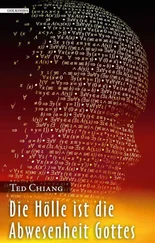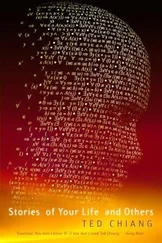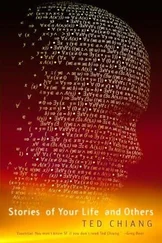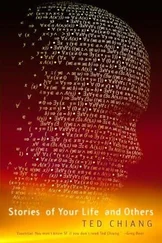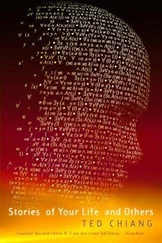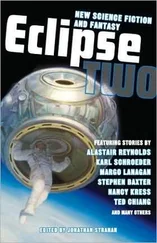Existing linguistic theory is useless; I’ll reevaluate basic logic to determine the suitable atomic components for my language. This language will support a dialect coexpressive with all of mathematics, so that any equation I write will have a linguistic equivalent. However, mathematics will be only a small part of the language, not the whole; unlike Leibniz, I recognize symbolic logic’s limits. Other dialects I have planned will be coexpressive with my notations for aesthetics and cognition. This will be a time-consuming project, but the end result will clarify my thoughts enormously. After I’ve translated all that I know into this language, the patterns I seek should become evident.
I pause in my work. Before I develop a notation for aesthetics, I must establish a vocabulary for all the emotions I can imagine.
I’m aware of many emotions beyond those of normal humans; I see how limited their affective range is. I don’t deny the validity of the love and angst I once felt, but I do see them for what they were: like the infatuations and depressions of childhood, they were just the forerunners of what I experience now. My passions now are more multifaceted; as self-knowledge increases, all emotions become exponentially more complex. I must be able to describe them fully if I’m to even attempt the composing tasks ahead.
Of course, I actually experience far fewer emotions than I could; my development is limited by the intelligence of those around me, and the scant intercourse I permit myself with them. I’m reminded of the Confucian concept of ren : inadequately conveyed by ‘benevolence,’ that quality which is quintessentially human, which can only be cultivated through interaction with others, and which a solitary person cannot manifest. It’s one of many such qualities. And here am I, with people, people everywhere, yet not a one to interact with. I’m only a fraction of what a complete individual with my intelligence could be.
I don’t delude myself with either self-pity or conceit: I can evaluate my own psychological state with the utmost objectivity and consistency. I know precisely which emotional resources I have and which I lack, and how much value I place on each. I have no regrets.
My new language is taking shape. It is gestalt-oriented, rendering it beautifully suited for thought, but impractical for writing or speech. It wouldn’t be transcribed in the form of words arranged linearly, but as a giant ideogram, to be absorbed as a whole. Such an ideogram could convey, more deliberately than a picture, what a thousand words cannot. The intricacy of each ideogram would be commensurate with the amount of information contained; I amuse myself with the notion of a colossal ideogram that describes the entire universe.
The printed page is too clumsy and static for this language; the only serviceable media would be video or holo, displaying a time-evolving graphic image. Speaking this language would be out of the question, given the limited bandwidth of the human larynx.
My mind seethes with expletives from ancient and modern languages, and they taunt me with their crudeness, reminding me that my ideal language would offer terms with sufficient venom to express my present frustration.
I cannot complete my artificial language; it’s too large a project for my present tools. Weeks of concentrated effort have yielded nothing usable. I’ve attempted to write it via bootstrapping, by employing the rudimentary language that I’ve already defined to rewrite the language and produce successively fuller versions. Yet each new version only highlights its own inadequacies, forcing me to expand my ultimate goal, condemning it to the status of a Holy Grail at the end of a divergent infinite regress. This is no better than trying to create it ex nihilo.
What about my fourth ampule? I can’t remove it from my thoughts: every frustration I experience at my present plateau reminds me of the possibility for still greater heights.
Of course, there are significant risks. This injection might be the one that causes brain damage or insanity. Temptation by the Devil, perhaps, but temptation nonetheless. I find no reason to resist.
I’d have a margin of safety if I injected myself in a hospital, or, failing that, with someone standing by in my apartment. However, I imagine the injection will either be successful or else cause irreparable damage, so I forego those precautions.
I order equipment from a medical supply company, and assemble an apparatus for administering the spinal injection by myself. It may take days for the full effects to become evident, so I’ll confine myself to my bedroom. It’s possible that my reaction will be violent; I remove breakables from the room and attach loose straps to the bed. The neighbors will interpret anything they hear as an addict howling.
I inject myself and wait.
My brain is on fire, my spine burns itself through my back, I feel near apoplexy. I am blind, deaf, insensate.
I hallucinate. Seen with such preternatural clarity and contrast that they must be illusory, unspeakable horrors loom all around me, scenes not of physical violence but of psychic mutilation.
Mental agony and orgasm. Terror and hysterical laughter.
For a brief moment, perception returns. I’m on the floor, hands clenched in my hair, some uprooted tufts lying around me. My clothes are soaked in sweat. I’ve bitten my tongue, and my throat is raw: from screaming, I surmise. Convulsions have left my body badly bruised, and a concussion is likely, given the contusions on the back of my head, but I feel nothing. Has it been hours or moments?
Then my vision clouds and the roar returns.
Critical mass.
Revelation.
I understand the mechanism of my own thinking. I know precisely how I know, and my understanding is recursive. I understand the infinite regress of this self-knowing, not by proceeding step by step endlessly, but by apprehending the limit. The nature of recursive cognition is clear to me. A new meaning of the term ‘self-aware.’
Fiat logos. I know my mind in terms of a language more expressive than any I’d previously imagined. Like God creating order from chaos with an utterance, I make myself anew with this language. It is meta-self-descriptive and self-editing; not only can it describe thought, it can describe and modify its own operations as well, at all levels. What Gödel would have given to see this language, where modifying a statement causes the entire grammar to be adjusted.
With this language, I can see how my mind is operating. I don’t pretend to see my own neurons firing; such claims belong to John Lilly and his LSD experiments of the sixties. What I can do is perceive the gestalts; I see the mental structures forming, interacting. I see myself thinking, and I see the equations that describe my thinking, and I see myself comprehending the equations, and I see how the equations describe their being comprehended.
I know how they make up my thoughts.
These thoughts.
Initially I am overwhelmed by all this input, paralyzed with awareness of my self. It is hours before I can control the flood of self-describing information. I haven’t filtered it away, nor pushed it into the background. It’s become integrated into my mental processes, for use during my normal activities. It will be longer before I can take advantage of it, effortlessly and effectively, the way a dancer uses her kinesthetic knowledge.
All that I once knew theoretically about my mind, I now see detailed explicitly. The undercurrents of sex, aggression, and self-preservation, translated by the conditioning of my childhood, clash with and are sometimes disguised as rational thought. I recognize all the causes of my every mood, the motives behind my every decision.
What can I do with this knowledge? Much of what is conventionally described as ‘personality’ is at my discretion; the higher-level aspects of my psyche define who I am now. I can send my mind into a variety of mental or emotional states, yet remain ever aware of the state and able to restore my original condition. Now that I understand the mechanisms that were operating when I attended to two tasks at once, I can divide my consciousness, simultaneously devoting almost full concentration and gestalt recognition abilities to two or more separate problems, meta-aware of all of them. What can’t I do?
Читать дальше


